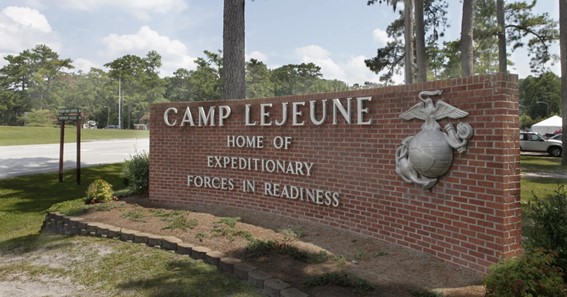Chemically tainted water at the Camp Lejeune military base in North Carolina is recognized as possibly causing life-threatening medical conditions for more than a million people. Many military members, their families, and civilian workers at the base from the mid-1950s until the mid-1980s were at risk of developing various cancers and other medical conditions.
The Veterans Administration has identified several diseases, like adult leukemia, that might develop due to the military base’s chemically tainted water. Those diseases also include:
- Non-Hodgkin’s lymphoma.
- Liver cancer.
- Kidney cancer.
- Bladder cancer.
- Parkinson’s disease.
The tainted water also caused miscarriages and claimed the lives of very young children. A local cemetery near Camp Lejeune has a section referred to as “Baby Heaven” and is the final resting place of many innocent young children who succumbed to various diseases caused by the tainted water.
How the Contamination Occurred
Water contamination has many causes, one of which includes civilian businesses located near the base. A dry cleaner that operated around the time the water became contaminated improperly disposed of cleaning chemicals, but that is not the only source of contamination.
The U.S. Navy had several fuel storage tanks that leached fuel into the ground. A significant amount of that fuel made its way into the freshwater supply. The military also used degreasers that likewise found their way into the water supply.
The base has several water treatment plants and water storage tanks. Only a portion of them became contaminated from about 1953 until 1987. Marine Corpsmen who were stationed at Camp Lejeune for 30 days might qualify for benefits. The 30 days could be the total time spent on the base during the time period of water contamination.
The servicemembers’ families who lived at the base and civilians who worked there also might suffer from health problems caused by the water. Virtually anyone who has to spend a total of 30 days at the military base might have been exposed sufficiently to develop serious health problems.
The recently enacted PACT Act reopens the window for filing claims related to injuries or illnesses caused by the tainted water at Camp Lejeune. The water is clean now, but anyone who spent a month or more at the military base while the water was contaminated has up to two years to initiate claims.
The PACT Act became necessary to address the matter because North Carolina’s statute of limitations had expired long ago. The nature of the contamination and a very long delay in discovering the problem meant the statute of limitations expired before most people knew what had happened to them.
A Brief History of Camp Lejeune
The U.S. Department of Defense founded the Camp Lejeune military base in 1941 to enable the Marines Corps to train for amphibious operations. The base occupies 246 square miles along the Atlantic Coast and contains 11 beaches that enable the Navy and Marine Corps to practice combined amphibious operations.
Camp Lejeune has its own water treatment facilities and several sources of freshwater. Only a couple of the water sources were contaminated, but the military generally ignored the rising issue of base personnel, service members, and their families reporting health problems for many years. The Marine Corps still trains at the base, but the water contamination was corrected many years ago.
The U.S. Navy is the major operator of Camp Lejeune. The base is home to the Marine Corps expeditionary forces in readiness. It also is home to a major naval command and supports a Coast Guard base for operations in the nearby Atlantic Ocean.







